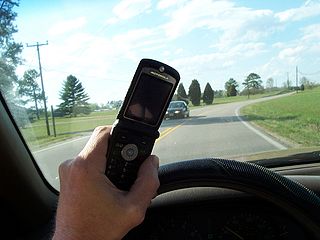Teens often take calls from parents who also use mobile phones while driving, survey reveals
Parents play a direct role in distracted teen driving, with more than half of teens talking on cellphones with their mother or father while driving, according to new research presented at the American Psychological Association’s 122nd Annual Convention.
Researchers interviewed or surveyed more than 400 teen drivers, ages 15 to 18, from 31 states to find out why they continue to talk and text behind the wheel, despite warnings about the serious hazards of distracted driving.
“Teens said parents expect to be able to reach them, that parents get mad if they don’t answer their phone and they have to tell parents where they are,” said Noelle LaVoie, PhD, a cognitive psychologist based in Petaluma, California. The teens also said that their parents use cellphones while driving and that “everyone is doing it,” according to the research, which was funded by the National Institutes of Health.
Distracted driving is one of the leading causes of crashes among all drivers. For teens, it causes 11 percent of fatal crashes, and of those, 21 percent involved cellphones, according to a 2013 report by the National Highway Transportation Safety Administration.
“It’s critical to raise awareness among parents and provide teens with tools for communicating with their parents,” said study co-author Yi-Ching Lee, PhD, of Children’s Hospital of Philadelphia. Several cellphone applications are available that can alert someone that the person they’re trying to contact is driving, LaVoie noted.
A 2013 survey by Liberty Mutual and the nonprofit organization Students Against Destructive Decisions (formerly Students Against Drunk Driving) found that 86 percent of 11th- and 12th-graders use a cellphone while driving, a significant increase from the results of a 2009 Pew survey that found that 43 percent of 16- and 17-year-olds talk on a cellphone while driving and 26 percent text while driving, according to the presentation.
The researchers designed their survey based on in-person interviews with 13 teens, ages 15 to 17, who had learner’s permits or driver’s licenses. They asked them about typical driving hazards, including talking on a cellphone and texting while driving. Every teen who said he or she talked on the phone while driving talked to parents, while 20 percent said they talked to friends. Among the 395 survey participants, 37 percent of the 15- to 17-year-olds with restricted drivers’ licenses and 50 percent of the 18-year-olds with unrestricted licenses said they talked on the phone with a parent while driving.
When it comes to texting, the teens were more likely to send messages to friends than parents, the survey found. However, 16 percent of the 18-year-old survey participants said they had texted a parent while driving, while 8 percent of 15- to 17-year-olds said the same.
“Parents need to understand that this is not safe and emphasize to their children that it’s not normal or acceptable behavior,” said LaVoie. “Ask the question, ‘Are you driving?’ If they are, tell them to call you back or to find a spot to pull over so they can talk.”


